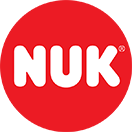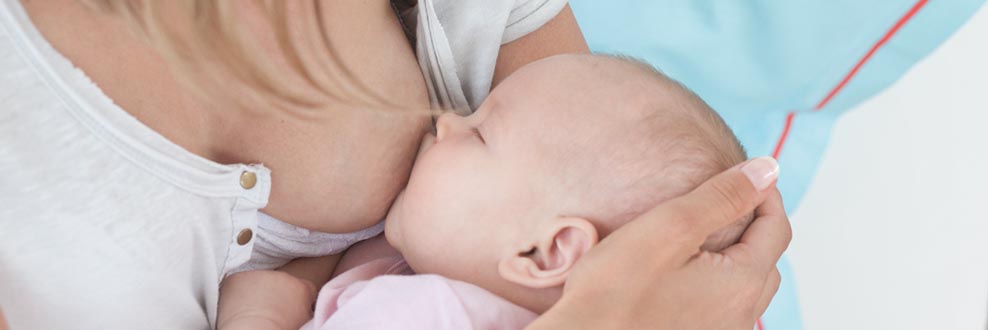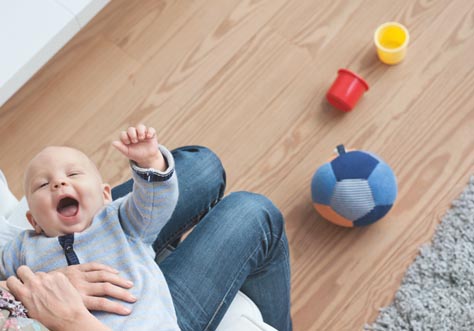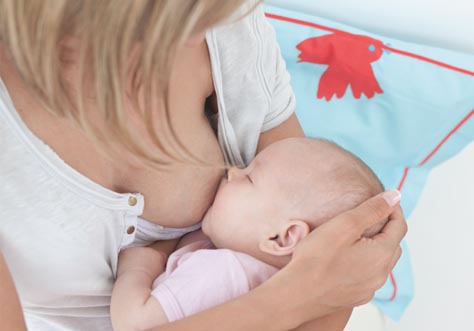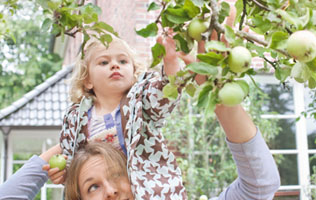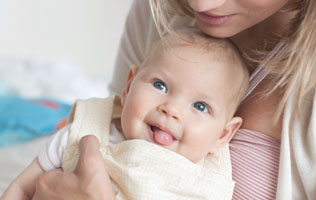As soon as your child suckles at your breast after the birth, your mammary glands set to work: one hormone stimulates the production of your breast milk, while another ensures its release. There is no need to worry about the amount, composition and temperature of the milk.
If you breastfeed for a long time, you do not have to feed your baby anything extra – even when your baby sometimes does not want to drink properly. Babies themselves know when, and how much, breast milk they need to grow big and strong. And the mammary glands in your breasts react immediately. They start producing less on the third day at the latest, and it works the other way round too. If your child is bigger and wants more, the amount increases accordingly. The more strongly and often your child sucks, the more milk is produced by your mammary glands. If you are worried that your baby still seems hungry, then ask your midwife or paediatrician.
Something you should always think about when you are breastfeeding: whatever you consume affects your baby too! Alcohol and cigarettes are like poisons to your child. So avoid anything that can damage health and lead to any poisons deposited in the body getting into the breast milk. And before you take any medication, it is best always to ask your doctor or chemist. By all means eat as much as you like. Best of all, as varied as possible and healthy. Among the things on your menu now should be lots of fresh fruit and vegetables as well as dairy products, eggs, meat and fish. But you should also be aware that, occasionally, healthy food can also have unpleasant consequences. For example, some babies get sore bottoms as a reaction to oranges, or terrible wind from garlic, peas, beans, lentils, cabbage or even wholemeal products.
The NUK Team of Experts answers your questions on the topic in a video session.
